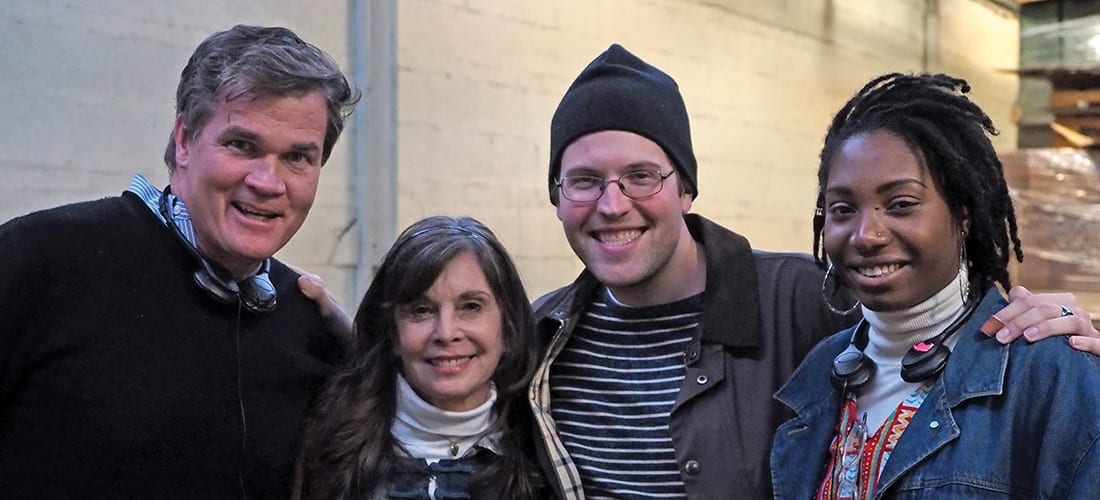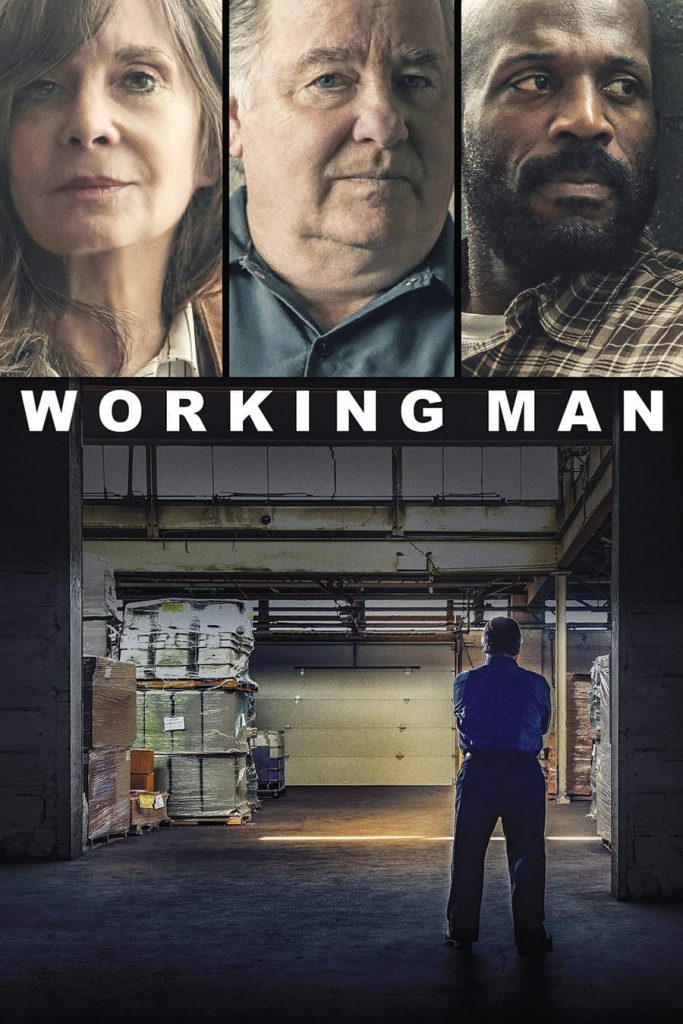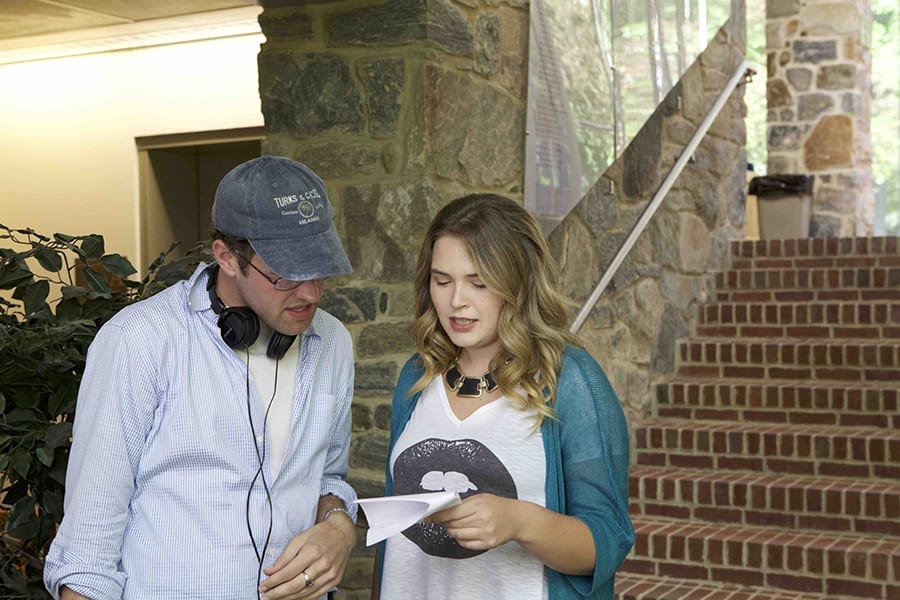The road to Hollywood
September 1, 2020

Film producer and Charlotte native Lovell Holder’s latest project draws critical praise.
by Raymond C. Jones
It’s not often that a native Charlottean has an opportunity to help produce a nationally released, critically acclaimed film. But that’s what Lovell Holder did when he lent his organizational skills and storytelling talents to the production of Working Man, an unemployment-themed film released earlier this year.
The independent film stars Peter Gerety as Allery Parkes, a blue-collar worker who loses his factory job in a struggling Midwestern town where any plant closure is felt by the entire community.
Talia Shire, beloved for her role as Sylvester Stallone’s wife, Adrian, in the Rocky movies, plays Allery’s wife, Iola. Veteran actor Billy Brown plays Walter Brewer, the spirited neighbor who joins Parkes in a grassroots movement to reopen the factory and fulfill its remaining work orders. Not surprisingly, this prospect strikes fear in the hearts of the plant’s former corporate bosses.

The Washington Post said this tension in the story line “turns the film into something deeper and more moving.” The Chicago Tribune called Working Man “a small, affecting picture [that] fits snugly within the pandemic realities of 2020.”
Holder, 33, did not grow up with any particular Hollywood connections or aspirations. A self-described “Charlotte Country Day School lifer,” he matriculated in 2005 at Princeton University, where his initial plan was prepping for law school.
Any thoughts of a standard corporate career fell by the wayside, however, after Holder auditioned successfully for a stage production in his freshman year. His resulting change in career plans was not initially welcomed by his parents, Carlene and Jack, who still reside in Lovell’s Morrocroft boyhood home. Nonetheless, they negotiated a compromise: Lovell agreed to do an internship at Bank of America if his parents would allow him to do summer theater.
“By the time I graduated, I was passionate about theater and not passionate at all about banking,” says Holder, who now lives in California but spends several months a year in Charlotte. He applied and was accepted to drama school at Brown University, which admitted only 18 students. His master’s program at Brown was prestigious but proved to be intensely demanding. Holder survived the pressure but longed to “escape” the East Coast and try something different.
A subsequent internship in California with producer Clark Peterson and his wife Stacy Rukeyser (daughter of the late Wall Street Week host Lou Rukeyser) altered the course of his career. Holder honed his film credentials working for Peterson as an assistant producer.
The experience enabled him to spend the next couple years working on two independent films, Some Freaks and Loserville. While neither is a household name, the quality of work made a big impression on Peterson. Later, when Peterson started collaborating with screenwriter Robert Jury to transform Jury’s scriptfor Working Man into a viable film, he asked Holder to come to Chicago and co-produce the movie.

On set, Holder shared day-to-day responsibilities with co-producer Maya Emelle. “Together,” he says, “we were the last line of defense if any kind of a problem arose, be it with costs, logistics or creative interpretation.”
As a result of good luck and smooth working relationships among cast and crew, Working Man was completed in just two months, one for pre-production and one for shooting. Holder’s parents even flew to Chicago during the shoot to see firsthand what their son does for a living. Holder arranged a cameo role for them in one of the movie’s crowd scenes.
Though he was disappointed that Working Man could not be released directly to theaters, Holder says the country’s Covid-19 theater closures ultimately worked to the film’s benefit.
“Our initial plan was to debut in Los Angeles and Chicago, but, in retrospect, that scenario would have severely limited our exposure,” he says. “By releasing the film through video-on-demand outlets, we achieved instant nationalvisibility and ended up earning favorable reviews coast to coast. I guess you could say it took the entire system breaking down in order for our film to break through.”
The movie’s timing and unemployment theme virtually guaranteed a high level of public interest, Holder says.While the “structural” unemployment caused by industrial decline isn’t quite the same as the “circumstantial” unemployment caused by Covid-19, both scenarios produce similar economic and psychological fallout.
“In either case, the victims feel marginalized and powerless for an indefinite period of time,” Holder says. “And in both cases, there’s a distinct possibility that life will not return to what it was before. How a person moves forward in such a circumstance is one of the great questions of our time, as is the question of whether the so-called ‘American Dream’ is even still alive,” he says. “I don’t know the answer … but it was a unique opportunity to shape a film that demands further thought about that question.”
Because of his young age and Ivy League background, Holder says he is sometimes asked how he could possibly bring value to a film that examines the declining fortunes of older, working-class Americans. He attributes the maturity of his perspective to the nurturing environment he experienced growing up in Charlotte. “My parents, teachers and friends teamed up to ensure that I would bring an appropriate level of care to the things I do. They said, in effect, ‘We’re giving you our best. Now you go out into the world and do something with it.’”
Holder’s activities in college theater, graduate school and film production all served to validate the fact that his No. 1 personal and professional strength is storytelling. “I’m grateful to the Charlotte community for helping me to cultivate this particular talent,” he says. “I truly relish the opportunities I’ve been given to tell stories that would not otherwise be told, to audiences that would not otherwise hear them.” SP
More information about Working Man, including a trailer, can be seen at workingmanmovie.com.
Freelance writer Ray Jones is a frequent contributor to Charlotte area publications. Reach him at raycharlesjones@yahoo.com.
Top photo of producer Clark Peterson, actor Talia Shire, producer Lovell Holder and producer Maya Emelle provided by Lovell Holder




